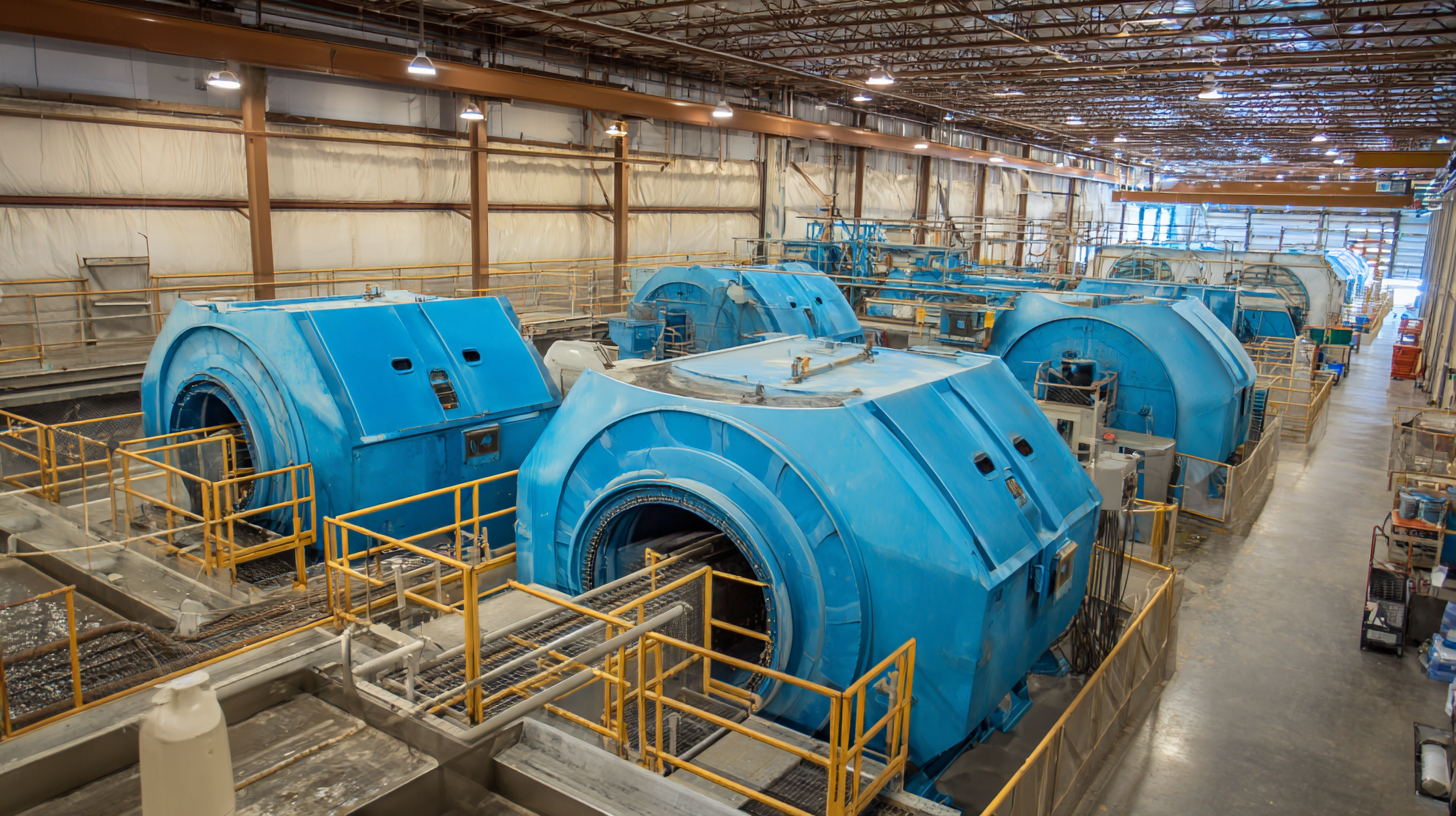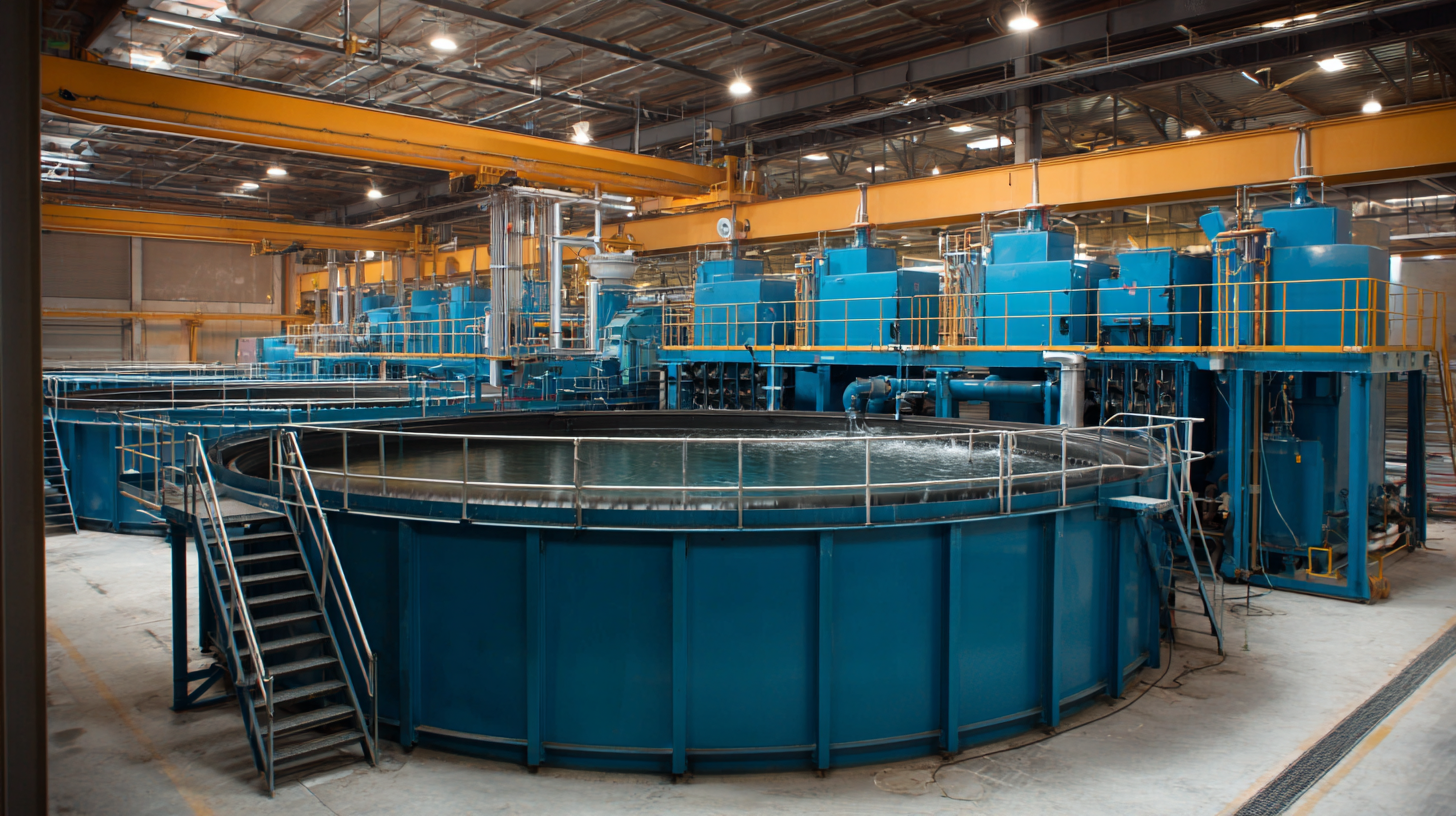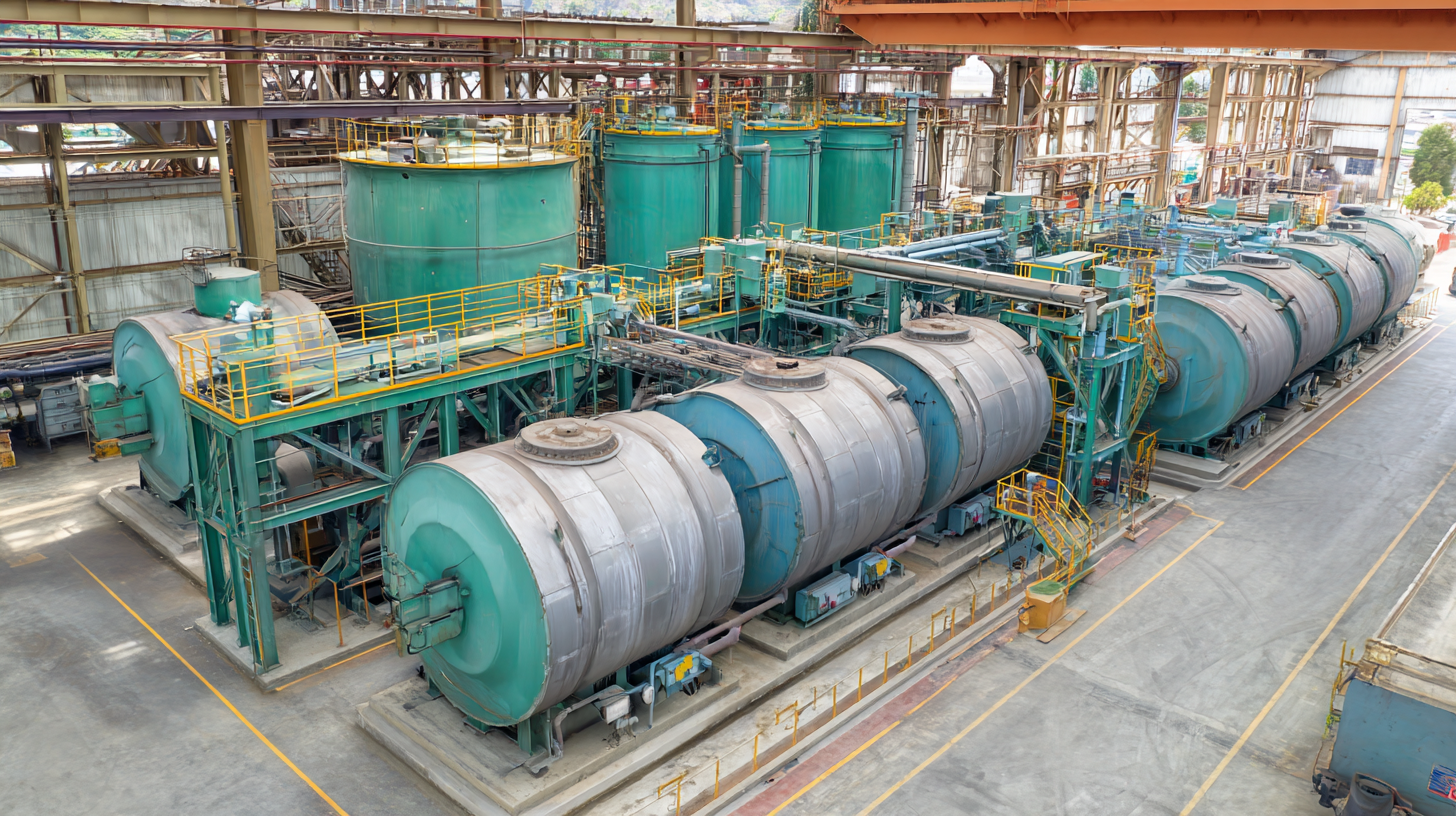 +86 13600513715
+86 13600513715



 In the realm of wastewater treatment, the adoption of advanced filtration technologies has proven crucial for enhancing efficiency and sustainability. Among these, the Rotating Drum Filter has emerged as a game-changer, transforming traditional processes with its superior performance and operational reliability. According to a report from the Global Water Intelligence (GWI), the market for wastewater treatment technologies is projected to reach over $120 billion by 2026, driven by increasing regulatory pressures and the need for effective treatment solutions. The Rotating Drum Filter exemplifies this innovation, offering significant capabilities in removing solids and optimizing water quality. As it operates by utilizing a continuous rotating mechanism, this filter not only reduces energy consumption but also diminishes the physical footprint required for treatment facilities. With proven outcomes that align with industry standards, the Rotating Drum Filter is setting new benchmarks for wastewater management and sustainability in our ever-evolving environmental landscape.
In the realm of wastewater treatment, the adoption of advanced filtration technologies has proven crucial for enhancing efficiency and sustainability. Among these, the Rotating Drum Filter has emerged as a game-changer, transforming traditional processes with its superior performance and operational reliability. According to a report from the Global Water Intelligence (GWI), the market for wastewater treatment technologies is projected to reach over $120 billion by 2026, driven by increasing regulatory pressures and the need for effective treatment solutions. The Rotating Drum Filter exemplifies this innovation, offering significant capabilities in removing solids and optimizing water quality. As it operates by utilizing a continuous rotating mechanism, this filter not only reduces energy consumption but also diminishes the physical footprint required for treatment facilities. With proven outcomes that align with industry standards, the Rotating Drum Filter is setting new benchmarks for wastewater management and sustainability in our ever-evolving environmental landscape.
The evolution of wastewater treatment has been significantly influenced by advancements in filtration technologies, with rotating drum filters at the forefront. These innovative systems offer a more efficient and effective method of screening and removing solids from wastewater. Historically, traditional methods such as manual screening and outdated sedimentation techniques presented challenges, including high labor costs and ineffective contaminant removal. However, the introduction of rotating drum filters has transformed these processes, providing automated, continuous operation while minimizing the footprint and energy consumption.

Rotating drum filters utilize a cylindrical mesh screen that rotates through the wastewater, allowing for the capture of solids as the water passes through. This mechanism not only enhances the quality of effluent but also reduces the risk of clogging, which is a common issue with conventional systems. Furthermore, the self-cleaning action of these filters ensures consistent performance and minimal maintenance requirements. As municipalities and industries increasingly prioritize sustainability and compliance with environmental standards, the adoption of rotating drum filters is paving the way for smarter, more reliable wastewater treatment solutions.
Rotating drum filters have emerged as a transformative solution in wastewater treatment, greatly enhancing efficiency and effectiveness through their innovative design. These filters utilize a cylindrical screen that rotates partially submerged in the wastewater flow, allowing solid particles to adhere to the surface while clean water exits the system. This design not only maximizes surface area but also minimizes clogging, ensuring consistent performance.
One of the key features of rotating drum filters is their self-cleaning mechanism, which significantly reduces maintenance downtime. This is achieved through a combination of backwashing and the gravitational pull of the rotating drum, which helps dislodge accumulated solids. For operators, incorporating a regular maintenance schedule and monitoring the filtration performance can further enhance the longevity and efficiency of the system.
Another advantage is the ability to adjust the filtration rate in real-time, adapting to varying flow conditions. This flexibility ensures optimal performance under different operational scenarios. For best results, operators should consider leveraging automated control systems to adjust the flow rate and optimize the filter's performance dynamically, ultimately leading to improved treatment outcomes and reduced operational costs.
In recent years, rotating drum filters have emerged as a transformative technology in the wastewater treatment sector. According to a report by Global Water Intelligence, facilities implementing these filters have reported a 30% reduction in operational costs and a 25% increase in water recovery rates compared to traditional filtration methods. Case studies from various regions underscore the effectiveness of this technology. For instance, a treatment plant in California showcased a remarkable 40% decrease in solid waste volume after integrating rotating drum filters, demonstrating not only enhanced efficiency but also significant environmental benefits.
Moreover, a study published in the Journal of Environmental Engineering highlights the successful implementation of rotating drum filters in several European municipalities. In these cases, wastewater treatment plants achieved compliance with stringent discharge regulations, resulting in a 50% reduction in total suspended solids (TSS) levels. Such outcomes illustrate the potential of rotating drum filters to meet both regulatory demands and sustainability goals in wastewater management. These proven results signify a pivotal shift in how wastewater treatment processes can leverage advanced filtration technology to optimize performance and minimize environmental impact.
The comparative analysis between rotating drum filters and traditional wastewater treatment methods reveals significant advancements in efficiency and performance. Traditional methods, such as activated sludge systems, often struggle with high energy consumption and space requirements, typically utilizing excessive chemicals that can harm the ecosystem. Data from the Water Environment Federation indicates that these conventional systems can waste up to 40% of their energy, which translates into increased operational costs for wastewater facilities.

In contrast, rotating drum filters offer a more sustainable solution. These systems have been shown to reduce energy consumption by approximately 30%, according to a study published in the Journal of Water Research. Their design minimizes chemical use while enhancing solid-liquid separation, leading to improved effluent quality. Furthermore, the ability of rotating drum filters to handle variable flow rates with minimal operator intervention sets them apart, making them ideal for modern treatment facilities aiming to meet stricter regulatory standards. As the industry continues to pivot toward more efficient technologies, the advantages of rotating drum filters are becoming increasingly clear.
The future of wastewater management is being reshaped by innovative technologies, with rotating drum filters leading the charge. These advanced filtration systems offer a range of benefits that are revolutionizing how we treat wastewater. Unlike traditional methods that often rely on gravity-based processes, rotating drum filters employ a dynamic, self-cleaning mechanism that enhances efficiency and reduces operational costs. With their ability to effectively remove solids and contaminants from wastewater, these filters are setting new standards for purity and resource recovery.
Moreover, the integration of rotating drum filters into existing wastewater treatment frameworks presents numerous opportunities for sustainability. As water scarcity becomes an increasingly pressing global issue, these filters can help municipalities and industries maximize water reuse. By improving the quality of treated water, rotating drum filters not only make wastewater safer for release into the environment but also open up avenues for its repurposing in agricultural or industrial applications. As such, investing in these innovative filtration technologies is not merely a response to regulatory demands but also a strategic move towards a more sustainable future, where water management becomes synonymous with efficiency and eco-friendliness.
| Dimension | Value | Impact on Wastewater Treatment |
|---|---|---|
| Filtration Efficiency | 95% removal of solids | Improves water quality, reduces contaminants |
| Energy Consumption | 20% less than conventional systems | Lower operational costs, more sustainable |
| Maintenance Frequency | Reduced to bi-annual | Lower downtime, improved system reliability |
| Footprint Size | 30% smaller than traditional systems | Saves space, suitable for urban areas |
| Return on Investment | Less than 3 years | Faster payback improves project feasibility |
| Operator Training | Minimal training required | Reduces training costs and time |
